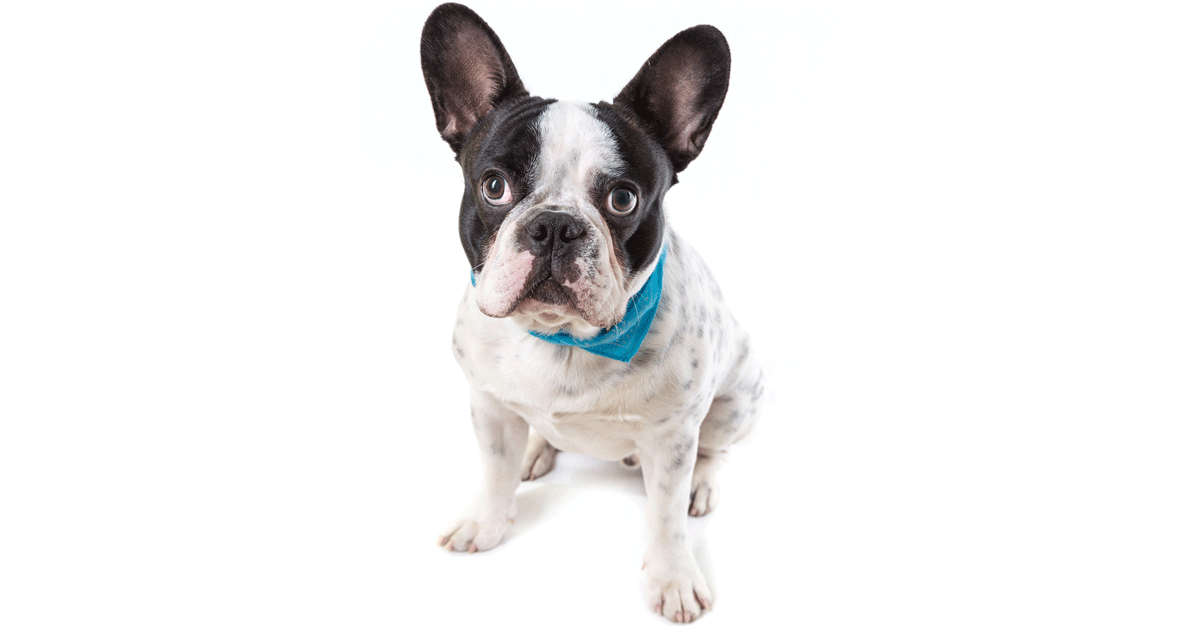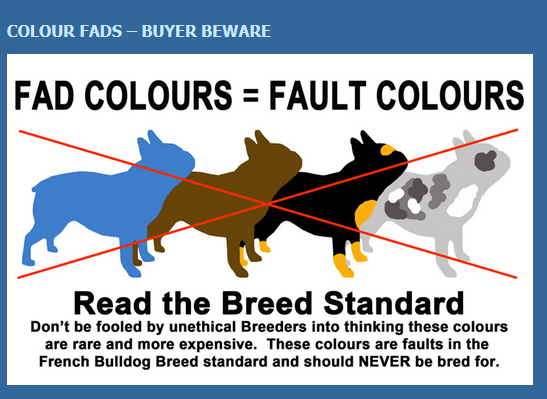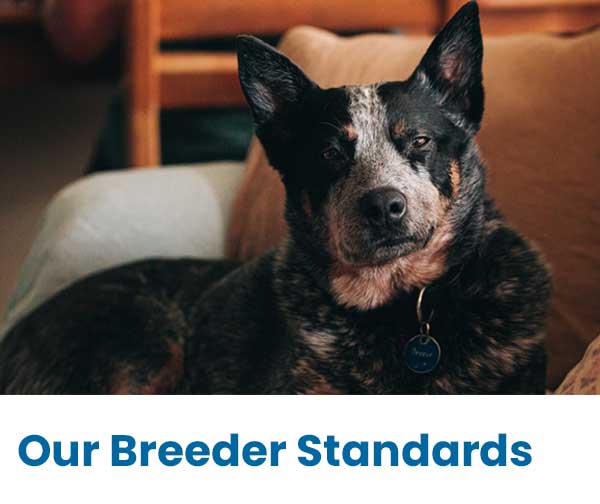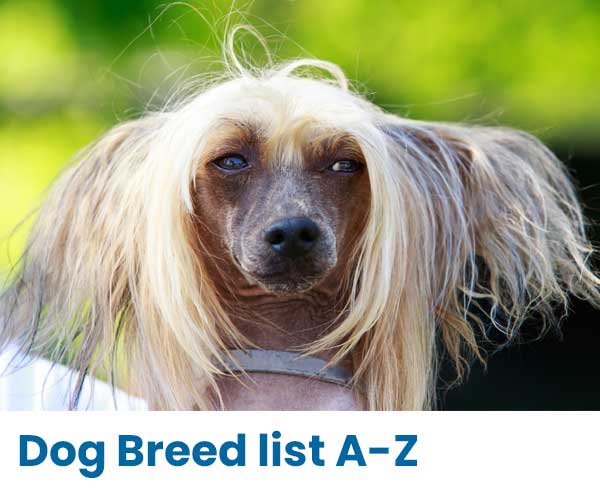French Bulldog breed guide
The French Bulldog is a small to medium domestic dog that originated in England and was bred to be a toy-size version of the Bulldog. Frenchies, as they're commonly known, are all eyes and ears with a large almost square head. Their soft melting facial expression is set off beautifully with superb ‘bat’ ears. The ear shape is unique in the dog world, and without the bat ear shape and set, you don't have a Frenchie. The other important breed characteristic is the short, undocked tail.
French Bulldog temperament
French Bulldogs are described as intelligent and courageous, however their wilful, stubborn nature can make them challenging to train. They require patience, repetition, and early socialization. They are playful and affectionate and their loyal, loving nature makes them a wonderful companion dog.
The ideal home for a French Bulldog
French Bulldogs are great house/lap dogs. They thrive on human companionship and are ideal for people that have time to devote to them. Their compact size and calm nature also makes them great indoor pets. Frenchies can easily live with other breeds provided the proper introductions are done. They are good watchdogs, apparently barking for good reason and not 'yappy' like some of the other smaller breeds. The breed is considered very reliable with, and protective of children.
How much space and exercise does a French Bulldog need?
Frenchies can live happily in a flat and have fairly minimal exercise needs, but do require daily walks, even short ones of around 15 minutes, to keep their weight down. French Bulldogs can't swim because of their stocky physique so care must be taken near swimming areas.
French Bulldogs cannot live outdoors and precautions must be taken when exercising during hot or humid weather as they are prone to heat stress.
French Bulldogs and grooming needs
The French bulldog has only a single short coat that does not shed excessively and only needs occasional brushing. This coat type means that they do feel the cold and Frenchies living in cooler climates should have extra covering/clothing during winter.
Ears should be cleaned regularly with a damp warm cloth and run a cotton ball around the edge of the canal. French Bulldogs do not naturally wear their nails down and will need their nails trimmed regularly to prevent splitting and tearing.
How much can you expect to pay for a French Bulldog from a reputable, registered breeder?
According to the French Bulldog Clubs of NSW & VIC, a puppy from fully health tested parents should be $4,000 - $5,000.
Unfortunately, the huge increase in the popularity of French Bulldogs has created opportunities for unethical breeders who are exploiting the breed and charging $10,000+ for puppies. In response, The Australian National Kennel Council (ANKC) established a task force to investigate the corrupt practices affecting the breed (see Press Release March 2017).
According to the ANKC, these breeders tend to exploit the premise of 'Exotic' and 'Rare Colours' by disregarding the breed standard and falsifying colour. When colour is the main and at times only reason for producing a litter, health can and is at times compromised.
Does a higher price mean a better quality puppy?
The French Bulldog Club of NSW stresses that price is not indicative of quality, but is simply relative to what the public will pay (see FAQ's). Quality to an owner should relate to the health and soundness of the puppy, whether for a pet or a show dog and proof of health testing should always be provided. How well you can talk to and relate to the breeder, both before and after purchasing the puppy, is also of high importance.
Potential health issues in French Bulldogs
Reputable breeders will ensure that their dogs and puppies are free of issues that french bulldogs can face so be sure to ask for proof that testing has been done for the potential health problems listed below. It should be noted that NONE of these tests are compulsory, but ethical breeders will do whatever tests are available to them to ensure they are breeding healthy, quality animals.
Brachycephalic Obstructive Airway Syndrome (BOAS) can cause extreme breathing problems for French Bulldogs. The condition is associated with their face shape (long soft palate and narrowing of the nostrils), everted saccules and an underdeveloped trachea. Dogs suffering from BOAS should never be used for breeding. Good breeders aim to reduce these traits by selectively breeding for good palates and open nostrils. Breeding with fully tested specimens who exhibit both phenotypical (what we see) and genotypical (genetic makeup) healthy traits, helps to ensure that the offspring inherit desirable healthy traits - including good breathing.
Hemivertebrae - The French Bulldog has an average of 3-4 hemivertebrae. These are misshapen vertebrae that can occasionally cause severe instability of the spinal cord. Testing is recommended to reduce the incidence of this occurring. French Bulldogs can also suffer from Hip Dysplasia which can also be tested for to reduce the incidence of unstable hips.
French Bulldogs can also suffer from luxating or slipping patellas (dislocating kneecaps). This usually requires surgical intervention to give the dog relief. Again, dogs with this condition should not be bred from.
Heart conditions - Cardiomyopathy, heart murmurs and pulmonic stenosis are some of the conditions that can occur. Unfortunately, heart conditions are on the rise within the French Bulldog due to irresponsible breeders - for more information see Heart Health, The French Bulldog Club of Qld for more information. Dogs with any heart condition should NEVER be bred from.
Hereditary Cataracts
Called "juvenile cataracts" to differentiate them from cataracts associated with old age or degeneration. Juvenile cataracts appear at an early age and because they are usually inherited, can be picked up with DNA testing.
Cystinuria (Type 3) is a genetic defect in the kidney tubules that causes bladder stones in male French Bulldogs. Neutering is curative in dogs that are affected, but both males and females can be carriers and should be tested. Cystinuria is thought to have arrived in Australia recently via dogs and semen imported from Europe. Increasing numbers of Australian breeders are testing for cystinuria. It should be noted that a specific test is required to detect type 3 Cystinuria - the French Bulldog version of the defect. Standard DNA testing is not sufficient.
French Bulldog general facts
The French Bulldog is a small to medium domestic dog, around 30cm high at its shoulders, weighing roughly 11 (female) -12.5kg (male).
French Bulldog colour variations
The only correct colours for the breed (Brindle, Fawn, Pied) are illustrated in the images provided in the gallery. In all colour patterns the pigment on nose, lips & eyes MUST be black.
- Fawn - with or without a black mask, ideally fawn should be clean and clear.
- Brindle - a mixture of black and fawn hairs creating brindle patterning (striping).
- Pied (Pattern) - White base with either brindle or fawn patches. Ideally, the white base should be clean and clear of ticking or spotting.
'Rare' Colours in French Bulldogs
If interested in a French Bulldog it's important to know that many inexperienced people breeding for profit only. For Profit breeders are asking very high prices for so called "rare" colours like blue, lilac, black and tan. These colours are highly undesirable and can also include solid black, black and white, mouse, grey/blue, liver/chocolate and all patterns of these colours. When colour is the main and at times only reason for producing a litter, health can be compromised. Breed clubs world-wide are united in their concern about the irresponsible and reckless exploitation of French Bulldogs, particularly by those breeders who aim to produce rare colours.
Purchasing a puppy based on a 'rare' colour preference is strongly discouraged.
If you choose to buy a French Bulldog puppy for colour - ensure that prior to purchase you have proof of the correct (and complete) health testing of parents and the puppy - including certified radiographs of the spines and hips and DNA testing for all hereditary conditions. See French Bulldog Health Screening Information.
Thanks to Frogwyck French Bulldogs and the French Bulldog Club of NSW for contributing to this information.
Check our listings for Puppies for sale here and click on the links to our breeders below to go to their profile page. You can also click here to search for Registered French Bulldog Breeders by location.
- French Bulldog breeders Sydney
- French Bulldog breeders Melbourne
- French Bulldog breeders Brisbane
- French Bulldog breeders Adelaide
- French Bulldog breeders Perth
- French Bulldog breeders Darwin
- French Bulldog breeders Canberra
- French Bulldog breeders Hobart
- French Bulldog breeders the Gold Coast
- French Bulldog breeders Townsville
If you are a small scale ANKC registered breeder and would like to be listed here, just contact us or follow a few simple steps to add your details yourself.
We welcome helpful comments and contributions to information about this breed by email
Did you know French Bulldogs are not actually French? Watch to learn more about these cute pups.What breed would you like to see next? Let us know in the comments below!
Posted by Animalist on Friday, 11 September 2015








